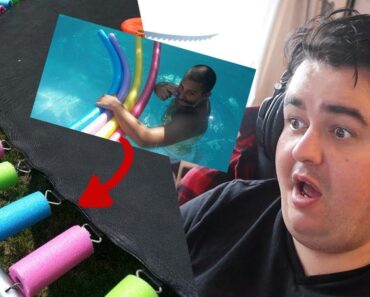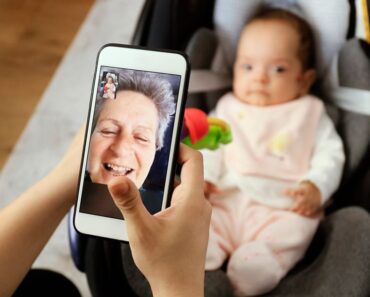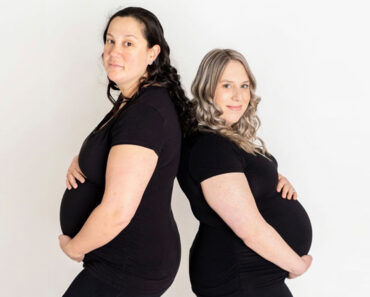When my older daughter was six (now eight), she came home one day from camp to tell us that she hated her body, hated the hair on her body and wanted it off (the hair or her limbs, she asked me to choose). It’s true that my partner’s hairy gene kicked in big time for my girls, gifting them both with the most gorgeous heads of hair and hairier bodies (compared to other girls their age).
I’ve worked for the last 20 years helping people develop safe and healthy relationships with food and their bodies, but when my own daughter said these words to me, I froze. Completely froze. How could my six-year-old say this? How could she already hate something about her body? How did I F&%* this up? It was like everything I’ve ever known drained right out of me.
In my frozen state, I transitioned through a bunch of scenarios in my mind thinking about my own parents and how they handled things with me, and thinking about other parents I knew and how they might handle this. First, it was the mama bear scenario: the fury inside rising, speaking in a heightened tone, “Did someone say something to you? Who was it? Gimme their name and I’m gonna give it to them…..!” But, no. That wouldn’t have been appropriate.
Next, the protective parent that desperately wants to make everything better, make everything go away: “You’re not hairy. That’s not true. Don’t worry about what people say to you. Ignore them. They’re probably just jealous because you’re so smart and so funny and people love you so much”. Nope. That wasn’t it either.
Some parents might say, “It’s nothing. So you have hair, who cares? When you’re older none of this will even matter. Try not to think about it.” Others might pretend that they never heard any of it and instead go on as though nothing of the sort was said. And of course, there are those who want to fix it: “We can shave or wax or laser, but not until you’re older. So until then, we will only wear long shirts and pants and I’ll pack you lots of water in case you get too hot at camp.” Definitely not the answer I wanted to go with.
How to stay calm and curious
As parents, when we stay calm and get curious, we invite opportunities to learn about our kids and what they feel. Fostering curiosity with our kids is key. So I put my head back on and did just that. “What do *you* feel about the hair on your body?” I asked. “This is the first you’ve ever said anything to me about it, how long have you felt this way?”
I learned a lot from my daughter in this conversation. She spoke about feeling different than other kids and wondered what (if anything) was wrong with her. Why did she have what others didn’t? Good questions. Hard questions.
She was crying and in need of my love and support and honest answers. She needed me to be there with her in what she was feeling, not make it go away, make it meaningless, make it silly or make it stop. She needed me to make it just about her and her feelings. And when I did, we could talk together about bodies, how they’re all so different, unique and special, and how it’s okay that she feels this way about hers. I told her that we’ll keep talking about it and will work on making a thoughtful plan about what to do about it (if anything).
Sometimes as parents, we forget how much our kids know, how much they feel and how much they understand. Though they may not have the cognitive capacity that we do as adults, they can share so much in their own age-appropriate way. It’s our job as parents to foster space for our kids and to meet them where they are developmentally. When we listen, learn and lean into them in loving, open and safe ways we can help them learn to help themselves.
Kyla Fox is an Eating Disorder Specialist, survivor, and advocate who reframes the ways that we think about and treat eating disorders. Kyla, herself, struggled with an eating disorder and an over-exercise addiction in her late teens.
In her quest to find help, she experienced large care gaps and fundamental flaws in the treatment and recovery approach, preventing her from getting the help that she needed.
So it became Kyla’s mission to become the therapist she would have wanted in her own recovery. Kyla is a Master’s-level clinician with degrees from both the University of Toronto in the Masters of Social Work program and an Honours Bachelor of Arts degree in Women’s Studies.
In February of 2012, after 10 years of private practice, Kyla established The Kyla Fox Centre, a first-of-its-kind eating disorder recovery centre, now fully virtual since COVID. Kyla, and her multidisciplinary team, treat those directly affected by eating disorders, along with supporting families, parents, and loved ones.
The centre provides individualized care that spans the spectrum of intensive outpatient treatment all the way through to long-term maintenance. Every day, Kyla and her team are saving lives.
With such deep and varied experience in the field, Kyla is regularly called on by Canada’s top media outlets as a special commentator on a broad list of topics, including eating disorders, self-esteem, women’s health, body image, pregnancy, body confidence and more. For more information, please visit www.kylafoxcentre.com.

































